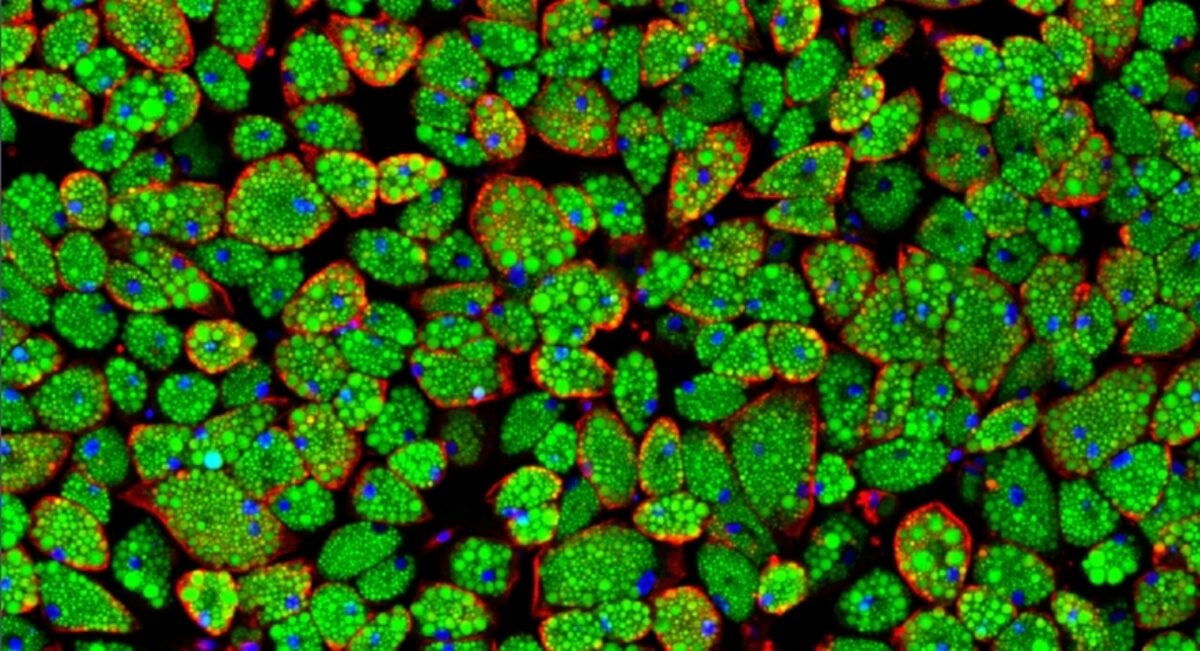
FaTTy is an immortalized, non-genetically engineered, cell line from pig with sustained ability to generate mature fat cells (adipocytes) with very high efficiency in culture. As such it is unlike any other pre-adipocyte lines generated to date, thus providing unprecedented potential for applications in cellular agriculture.
Application
Development Status
IP Status
No filings
Commercial Offering
Cell Lines are available for licensing or co-development
Opportunity
FaTTy is an immortalised, non-genetically engineered cell line from pig that is able to consistently differentiate into fat cells with extremely high efficiency, and maintains such ability over long-term in vitro culture. Its properties make FaTTy unique among existing livestock cell lines, and make it ideally suited for scaling up fat production for food manufacturing purposes. Importantly, it being non-genetically edited (i.e. non GMO) provides a significant added advantage for industry regulatory purposes – namely EU [EU GMO regulation in food and feed (regulation No.1829/2003)].
Technology Overview
The cell line was obtained from passaging of mesenchymal stem cell cultures (obtained from pig fat), which spontaneously overcame senescence in vitro.
Several sister lines with characteristics akin to FaTTy have also been generated in our laboratory. FaTTy consistently produces fat in vitro with much higher efficiency (80-95%) and for longer than ever recorded from any pig cells in culture. FaTTy can differentiate in serum-free conditions, and can produce adipocytes efficiently both using 2D and 3D systems, with mature (unilocular) adipocytes resulting after long-term (40-day) differentiation of FaTTy.
Benefits
As a non-GMO livestock cell line with exceedingly high capacity for fat production in culture, using relatively short and serum-free protocols, FaTTy holds enormous potential for the cultured meat industry.
Publications
Thrower, T., Riley, S.E., Lee, S. et al. A unique spontaneously immortalised cell line from pig with enhanced adipogenic capacity.
npj Sci Food 9, 52 (2025). https://doi.org/10.1038/s41538-025-00413-y
Quote: TEC1104562

Technology Transfer Manager
School of Biological Sciences
The Roslin Institute
College of Veterinary Medicine